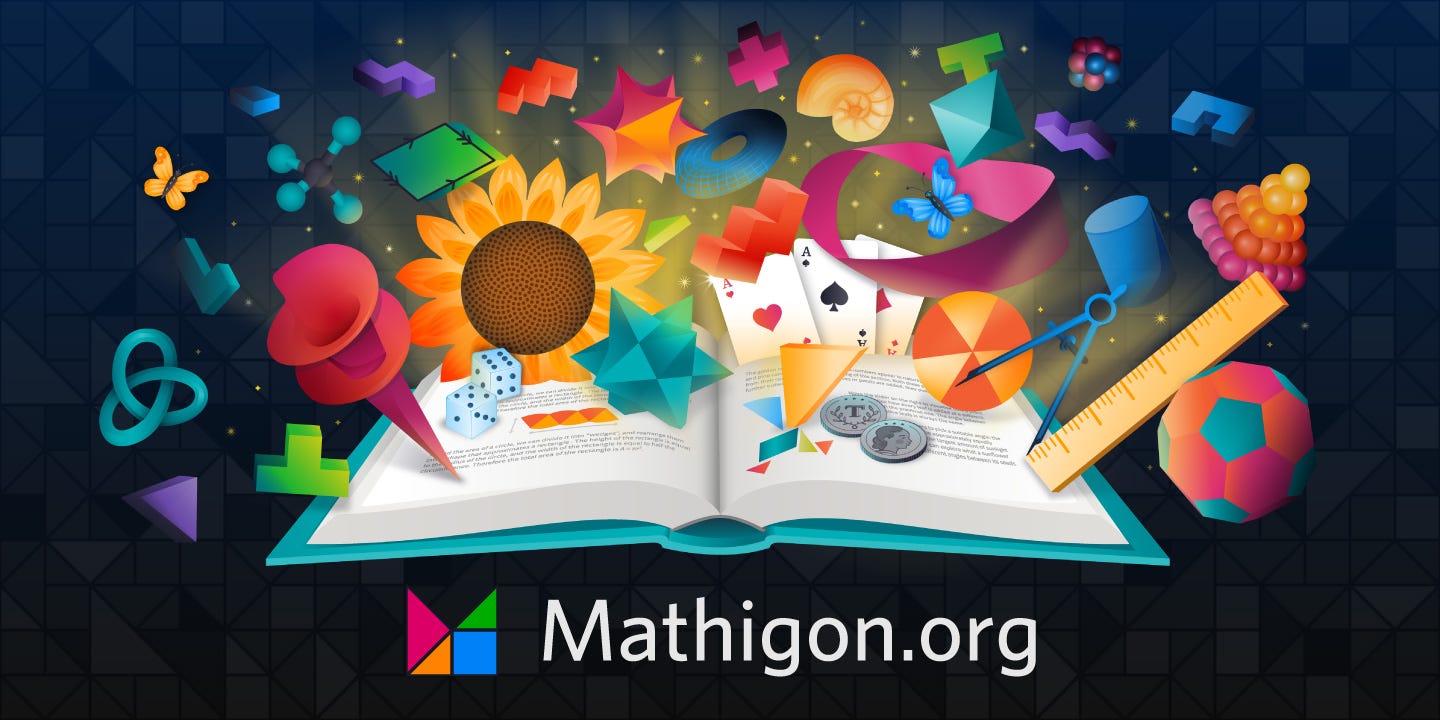Beyond digitizing math curricula, to transforming our relationship with numbers
The story of Mathigon - a playground for mathematics - shows the power of building from first principles and putting pedagogy first with a team of educators
It’s quite rare to hear somebody talk about mathematics the way Philipp does. He is that rare individual who sees mathematics for what it really is: a universal language for representing the world around us. As Philipp notes in our conversation earlier this year over Zoom, “many of us try to avoid dealing with numbers in our daily lives..some of us might actively hate it”. He just happened to be lucky enough to have teachers that helped him see the magic.

Philipp Legner is what I would call an accidental edtech entrepreneur. An educationalist with a deep passion for what he does, that is slowly but surely transforming his corner of the education landscape.
Philipp’s website Mathigon feels more like a place to “play” with numbers than a traditional maths classroom. Today, Mathigon has millions of learners that interact with the website every year and has reached over 10 million learners since its inception.
I first met Philipp in London when he was pitching his new maths education startup at an event organised by UCL’s EDUCATE program and hosted by the Mayor of London in 2018.
Among the many founders that pitched that evening, Philipp stood out for three reasons. He understood the problem he was trying to solve quite intimately and empathetically, he was laser focused on impact, and had a burning desire to develop an elegant solution. Philipp’s experience with Mathigon is a clear example of building from first principles.
Philipp first built Mathigon as a repository for maths content he had developed while volunteering for a maths teaching program as an undergraduate student at Cambridge University. That experience pushed Philipp away from academia and into teaching and software development. He started building Mathigon on the side with a focus on making people fall in love with maths by building a better curriculum. Licensing the content and technology to other publishers allowed him to keep Mathigon completely free for students and teachers.
After a stint as a software engineer at Google, Philipp decided to take the jump and pursue Mathigon fulltime in 2019. It had grown steadily over the years and the time had come to raise investment and hire a remote part-time team.
Less than two years after raising half a million dollars to build the “textbook of the future”, Mathigon was acquired by education behemoth Amplify for an undisclosed sum but with a clear commitment to ensuring the content on the website remains free to learners at point of use.
Philipp attributes Mathigon’s success to three key factors grounded around his theory of learning:
First, Philipp built Mathigon to ensure that learning could be as interactive as possible. In his words, “you simply cannot learn mathematics by watching videos or listening to lectures: students have to be much more active, which is especially difficult to do on digital platforms. Mathigon’s goal was never to prepare you for the next exam but to help you learn problem solving and critical thinking, and to encourage curiosity and creativity. With the rise of computers and AI, these skills are much more important than just being able to follow an algorithm for solving standardised exam problems”.
Second, Philipp spent a lot of time building Mathigon’s curriculum in a way that espoused storytelling and allowed students to learn what they were interested in. Philipp bemoans the fact that the predominant maths curricula around the world have not changed in over a century - starting with arithmetic and progressing linearly towards calculus. As such, learners never get to explore relevant and exciting topics like cryptography, game theory or data science. In contrast, Mathigon’s instructional design uses storytelling to actively show students the importance and relevance of what they are learning.
Third, like any good company, Mathigon had a uniquely talented team. The content writers were almost all teachers who had used Mathigon before - and many of them were in fact able to continue teaching while working on Mathigon part-time. This was made uniquely possible by the fact that Mathigon was a remote-first company with many employees working in different timezones.
Mathigon is one of what I hope will be many more similar edtech startups. These startups are led by passionate educators with a solid grasp of the problem, and focused on going beyond just "digitising" the existing education experience.
While digitisation has undoubtedly improved access and reduced cost, it has not fundamentally improved how students learn. It is only by thinking critically about the educational problem at hand and then combining that with how technology can help us learn in new ways that we push the envelope. As Philipp told me, “the current model of linear, standardised curriculums followed by easy-to-grade written exams simply isn't suitable anymore in a future containing AI and globalisation”. A radically changing world needs us to go beyond only improving access and reducing cost. We must think about how we fundamentally change the learning experience.


What a beautifully written story! I love the quote " Math is a universal language for representing the world around us." Thank you for sharing Nafez!